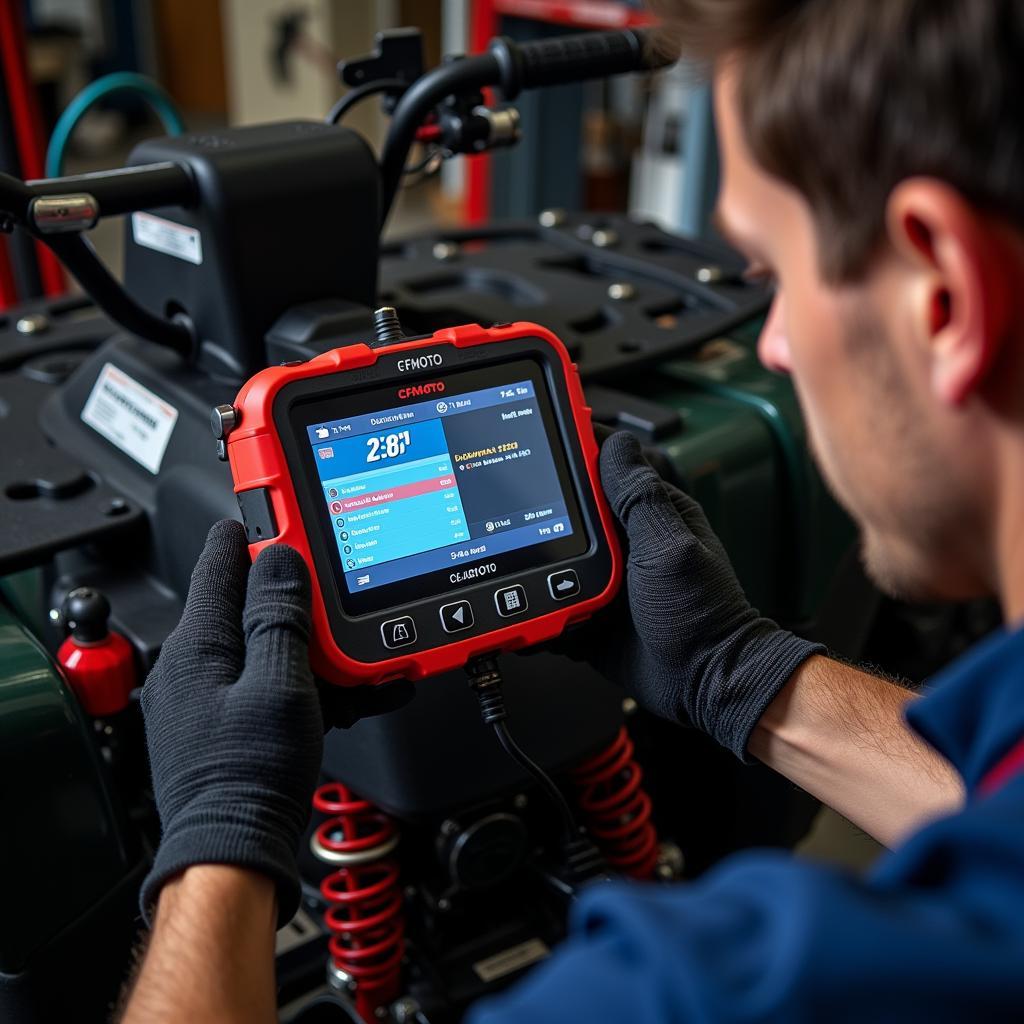Cardiac Diagnostic Tools are crucial for understanding the electrical activity within a heart, but this article isn’t about human cardiology. We’re focusing on the “heart” of your vehicle – its electrical system. Just as a cardiologist uses specialized tools to diagnose heart problems, automotive technicians rely on a suite of electronic diagnostic tools to troubleshoot and repair complex vehicle electrical issues. This article explores the essential tools and techniques every automotive professional needs to master.
Modern vehicles are increasingly reliant on sophisticated electronics. From engine management systems to advanced driver-assistance features, these systems are interconnected and complex, requiring specialized tools for accurate diagnosis. Understanding how these tools function and how to interpret the data they provide is essential for any automotive technician. [diagnostic tool used to detect electrical activity in the heart](https://scantoolus.com/diagnostic-tool-used-to detect-electrical-activity-in-the-heart/).
Understanding the Need for Cardiac Diagnostic Tools (in Automotive)
Why are these specialized diagnostic tools so important? Simply put, they save time and money. Gone are the days of blindly replacing parts and hoping for the best. These tools allow technicians to pinpoint the root cause of electrical problems quickly and efficiently, minimizing downtime and unnecessary expenses. They provide valuable insights into the inner workings of the vehicle’s electrical system, enabling technicians to make informed repair decisions.
What are the Common Types of Cardiac Diagnostic Tools?
Several types of cardiac diagnostic tools are essential for any automotive workshop. These include:
- Multimeters: The workhorse of any electrical diagnosis, multimeters measure voltage, current, and resistance, helping to identify faulty circuits and components.
- Oscilloscope: Providing a visual representation of electrical signals, oscilloscopes are invaluable for diagnosing complex sensor and actuator issues.
- Scan Tools: These tools communicate with the vehicle’s onboard computer system, retrieving diagnostic trouble codes (DTCs) and providing real-time data streams.
- Circuit Testers: Used to check the integrity of wiring harnesses and components, circuit testers help identify shorts, opens, and other connection problems.
Interpreting Data from Cardiac Diagnostic Tools
Collecting data is only half the battle. The real skill lies in interpreting that data and drawing accurate conclusions. This requires a deep understanding of vehicle electrical systems and the specific parameters measured by each tool. For example, analyzing waveform patterns on an oscilloscope can reveal intermittent sensor faults that might be missed by other diagnostic methods.
How to Choose the Right Cardiac Diagnostic Tool
Choosing the right tool depends on the specific problem you are trying to diagnose. A simple multimeter might suffice for checking a blown fuse, while a more advanced scan tool is necessary to access the vehicle’s control modules. Understanding the capabilities and limitations of each tool is crucial for effective diagnosis.
diagnostic tools for heart failure.
Advanced Techniques for Cardiac Diagnostic Tools
As vehicle technology advances, so too do the diagnostic tools and techniques. Staying up-to-date with the latest developments is crucial for staying competitive in the automotive industry. This includes understanding how to use specialized software and interpreting data from increasingly complex sensor networks.
The Future of Cardiac Diagnostic Tools in Automotive
The future of automotive diagnostics will likely involve even more sophisticated tools and techniques, including artificial intelligence and machine learning algorithms that can automatically diagnose complex problems.
describe current diagnostic tools and treatment options for cvd.
Conclusion: Staying Ahead with Cardiac Diagnostic Tools
Mastering cardiac diagnostic tools – in the automotive sense – is no longer optional but essential for any automotive professional. These tools empower technicians to accurately diagnose and repair increasingly complex vehicle electrical systems, ensuring efficient and cost-effective repairs. Contact ScanToolUS at +1 (641) 206-8880 or visit our office at 1615 S Laramie Ave, Cicero, IL 60804, USA, for more information and support. Embrace these tools, and you’ll stay ahead in the ever-evolving world of automotive technology.

